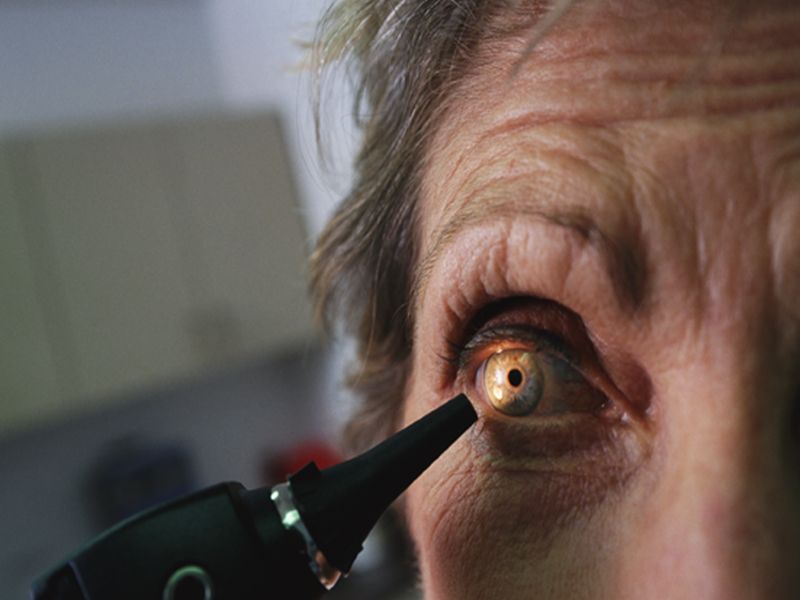

U.S. Glaucoma Cases Expected to Surge by 2030
Routine eye exams the best way to prevent this major cause of vision loss, eye experts say
Friday, January 6, 2017


FRIDAY, Jan. 6, 2017 (HealthDay News) -- Glaucoma affects more than 3 million Americans, but that number is expected to surge to more than 4 million by 2030, eye experts say.
Glaucoma is a group of incurable eye diseases that gradually lead to vision loss. There are two main types of glaucoma, but the most common form, which typically affects older people, causes an increase in pressure inside the eye that damages the optic nerve, according to the Glaucoma Research Foundation.
Glaucoma is the No. 1 cause of preventable blindness, but the condition often develops without warning, the foundation said. Medication or surgery can help slow or prevent vision loss, but many people with glaucoma aren't even aware they have it.
In many cases, the condition isn't detected until people lose side -- or peripheral -- vision. Eventually, glaucoma may cause people to permanently lose up to 40 percent of their vision, the foundation added.
Worldwide, 4.5 million people are blind due to glaucoma, according to the World Health Organization. In the United States, up to 12 percent of all cases of blindness stem from the disease. Blacks, Hispanics and Asians are disproportionately affected, the Glaucoma Research Foundation notes.
Others at greater risk for glaucoma include:
- Older people,
- People with relatives who have glaucoma,
- People with diabetes,
- People who are very nearsighted.
As the population ages, a blindness epidemic may develop if glaucoma awareness doesn't increase and more people don't get routine eye exams, the foundation warns. The group says the best way people can protect their vision is to have regular comprehensive eye exams, which can lead to earlier detection and treatment.
SOURCE: Glaucoma Research Foundation, news release, Jan. 2, 2017
HealthDay
Copyright (c) 2017 HealthDay. All rights reserved.
News stories are provided by HealthDay and do not reflect the views of MedlinePlus, the National Library of Medicine, the National Institutes of Health, the U.S. Department of Health and Human Services, or federal policy.
- More Health News on:
- Glaucoma








































No hay comentarios:
Publicar un comentario